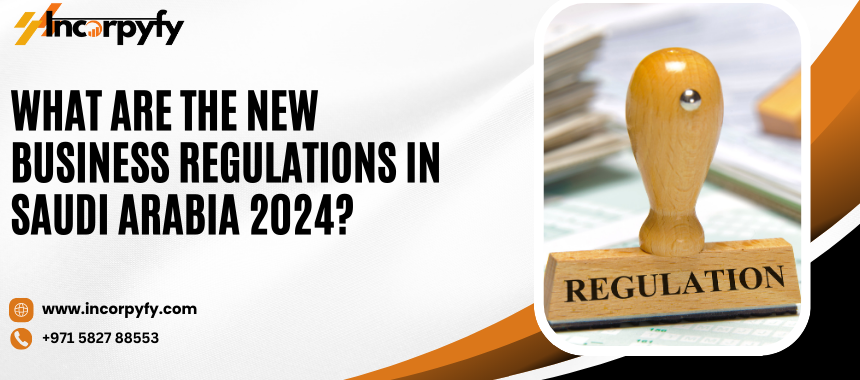
Saudi Arabia, a rapidly transforming nation, has been implementing sweeping reforms to create a more diversified and thriving business environment. As part of the kingdom’s Vision 2030 economic diversification plan, the government has introduced various new business regulations aimed at fostering entrepreneurship, attracting foreign investment, and promoting sustainable economic growth.
Introduction
In recent years, Saudi Arabia has made significant strides in overhauling its legal and regulatory framework to enhance the ease of doing business and align itself with global best practices. These new business regulations reflect the kingdom’s commitment to modernizing its economy, streamlining processes, and creating a conducive environment for local and international businesses to thrive.
New Foreign Investment Regulations
Saudi Arabia has implemented a series of reforms to attract and facilitate foreign direct investment (FDI). The new Foreign Investment Law, introduced in 2021, aims to create a level playing field for foreign investors by granting them the same rights and protections as their Saudi counterparts. Key highlights of the new regulations include:
- Removal of the 49% foreign ownership cap: Foreign investors can now own 100% of businesses in Saudi Arabia, except in specific sectors where limitations may still apply.
- Reduced negative list: The list of sectors restricted for foreign investment has been significantly reduced, opening up more opportunities for foreign businesses.
- Investment incentives: The government offers a range of incentives, such as tax breaks, subsidized utilities, and access to industrial zones, to encourage foreign investment.
Privatization and Public-Private Partnerships (PPPs)
To foster private sector participation and enhance economic efficiency, Saudi Arabia has adopted a privatization strategy and actively promotes public-private partnerships (PPPs). The new PPP Law, enacted in 2022, provides a clear legal framework for the development and implementation of PPP projects across various sectors, including infrastructure, healthcare, education, and utilities.
Entrepreneurship and SME Support
Recognizing the vital role of small and medium-sized enterprises (SMEs) in driving economic growth and job creation, Saudi Arabia has introduced several initiatives to support entrepreneurship and SME development. These include:
- Monsha’at Program: This government program offers financing, training, and incubation services to support the establishment and growth of SMEs.
- Entrepreneurship Licenses: The government has introduced new licenses to facilitate the establishment of startups and small businesses, including the Temporary Professional License and the Home Business License.
- Venture Capital Funds: The government has launched several venture capital funds to provide early-stage financing and support to promising startups and innovative businesses.
Digitalization and E-Commerce Regulations
In line with the kingdom’s digital transformation goals, Saudi Arabia has implemented new regulations to promote e-commerce and digital business activities. The E-Commerce Law, introduced in 2023, aims to provide a comprehensive legal framework for online transactions, consumer protection, and data privacy. Additionally, the government has launched various initiatives to enhance digital infrastructure, cybersecurity, and the adoption of emerging technologies such as artificial intelligence and blockchain.
Corporate Governance and Transparency
Saudi Arabia has made significant strides in improving corporate governance and transparency standards. The new Corporate Governance Regulations, issued in 2022, set out comprehensive guidelines for listed companies, covering areas such as board composition, shareholder rights, disclosure requirements, and risk management practices. These regulations aim to enhance investor confidence, promote ethical business practices, and align the kingdom’s corporate governance framework with international best practices.
Sustainability and Environmental Regulations
As part of its commitment to sustainable development, Saudi Arabia has introduced new regulations to promote environmental protection and combat climate change. The Environmental Protection Law, enacted in 2023, establishes a comprehensive legal framework for managing environmental issues, including air and water quality, waste management, and biodiversity conservation. Additionally, the government has implemented regulations to encourage the adoption of renewable energy sources and promote energy efficiency in various sectors.
Conclusion
Saudi Arabia’s new business regulations reflect the kingdom’s commitment to modernizing its economy, fostering a business-friendly environment, and attracting foreign investment. These reforms are expected to unlock new opportunities for local and international businesses, facilitate entrepreneurship, and drive sustainable economic growth.
At Incorpyfy, we specialize in assisting businesses in setting up companies in Saudi Arabia. Our experienced team stays up-to-date with the latest business regulations and can provide valuable guidance to navigate the regulatory landscape effectively. Whether you’re a local entrepreneur or a foreign investor, we offer comprehensive support throughout the company formation process, ensuring compliance with all applicable laws and regulations. Contact us today to learn more about how we can support your business venture in Saudi Arabia’s rapidly evolving economic landscape.





